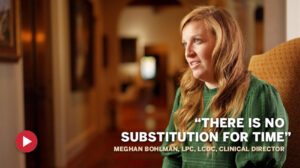
Identifying Chronic Relapse: Damaged Relationships in the Cycle of Addiction
Chronic relapse leaves a trail of damaged relationships in its wake. Sometimes it takes time – even years – for the damage to heal, and even then it may leave scars.
Explore the Ranch
Burning Tree Ranch is a specialty program dedicated to the treatment of chronic addiction and mental health. Our program is long-term, progress-based, and highly intensive.
Our Story in Photos & VideosContact Burning Tree
Our Promise: Deliver life-changing clinical interventions to those who have been unable to find freedom from the unending cycle of relapse.
Send us a MessageThis page serves as a comprehensive guide for families grappling with the complexities of addiction and mental health issues. It offers a wealth of information, including expert articles, personal stories, treatment options, and coping strategies. Designed to support and educate, this resource aims to empower families with the knowledge and tools needed to navigate the challenging journey toward recovery and well-being.

Chronic relapse leaves a trail of damaged relationships in its wake. Sometimes it takes time – even years – for the damage to heal, and even then it may leave scars.

Unsurprisingly, emotional instability is one of the most challenging aspects accompanying a chronic addiction. How do we qualify what emotional instability is related to an addiction and which behaviors are a normal stress response?

One of the most telling signs of chronic relapse is the number of treatment programs an individual has been through. When assessing a loved one’s addiction severity, we often ask families, “How many treatment centers has your loved one attended?”

Dear Families, I often meet you after the whirlwind that ends with your loved one arriving at Burning Tree Ranch. I meet you in the space between relief that your loved one made it into long term treatment and fear that they won’t stay long enough to accept the help being offered. It is in this space that our treatment team will begin construction of something new with you.

I’ve spent many years working with families in addiction, and have heard this question countless times: “Why didn’t the 12 steps work for me?” It’s a common refrain, especially from those who’ve struggled with chronic relapse and have already attended multiple rehab programs.

Why do short-term rehab programs so often fail chronic relapsers? The truth is, while these programs can be effective for some people, they are simply not designed to meet the complex needs of those with the most severe, long-standing addictions.

Meghan Bohlman shares how giving the necessary time in a long-term treatment setting helps improve recovery outcomes at Burning Tree Ranch.

Anxiety disorders and alcohol use disorders are two of the most common mental health conditions, affecting millions worldwide. These comprise many individuals I’ve helped treat and guide throughout my career.
Creating a Life of Excellence Beyond Sobriety
- Since 1999 -
Disclaimer: Burning Tree Ranch aims to enhance the quality of life for individuals battling substance use and mental health disorders through well-researched and professionally reviewed content. Our publications focus on the nature of behavioral health conditions, available treatments, and their outcomes. Reviewed by licensed experts, our material is informative but not a replacement for professional advice, diagnosis, or treatment. Always seek the guidance of a licensed health provider for any medical or clinical concerns.